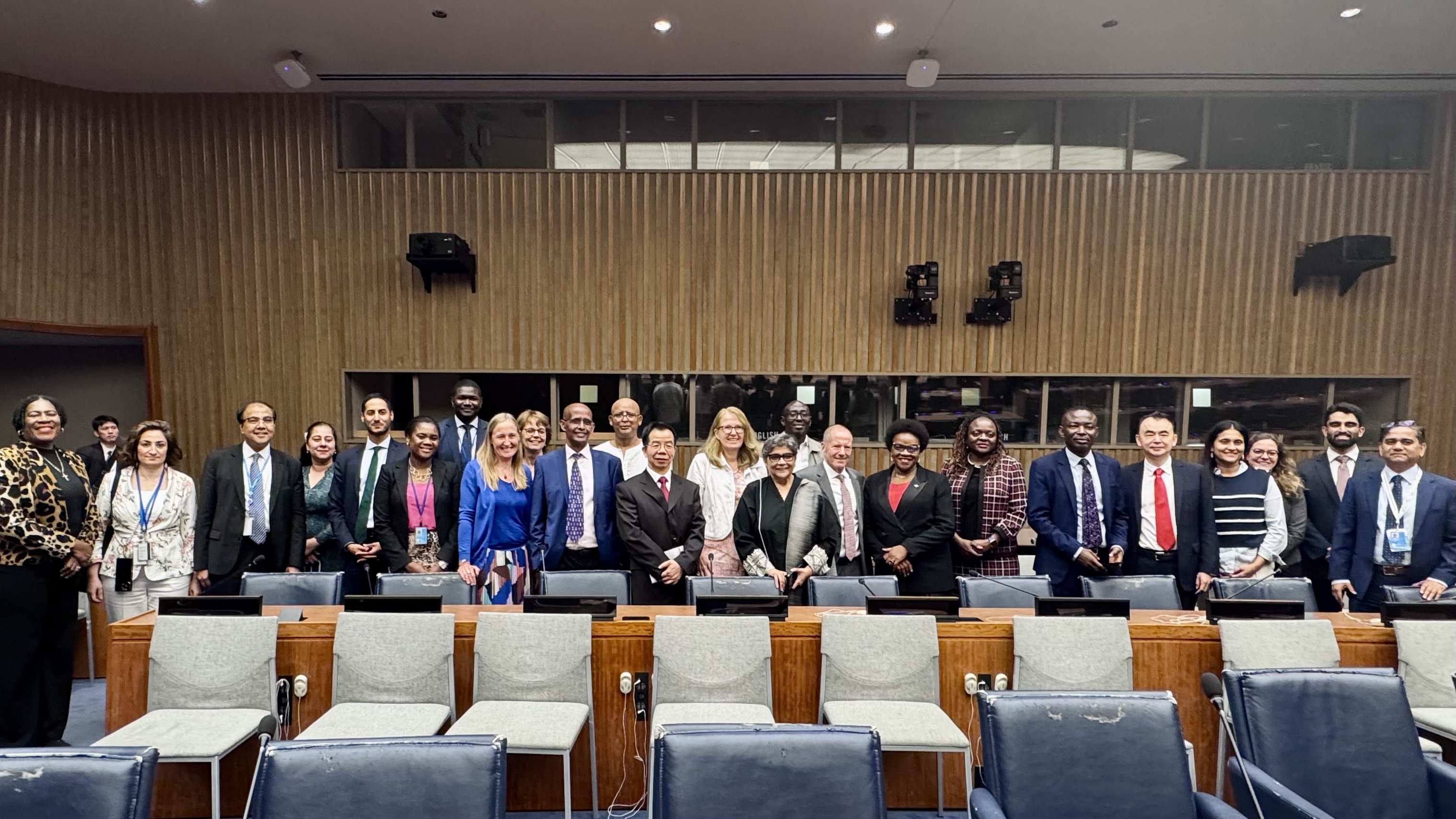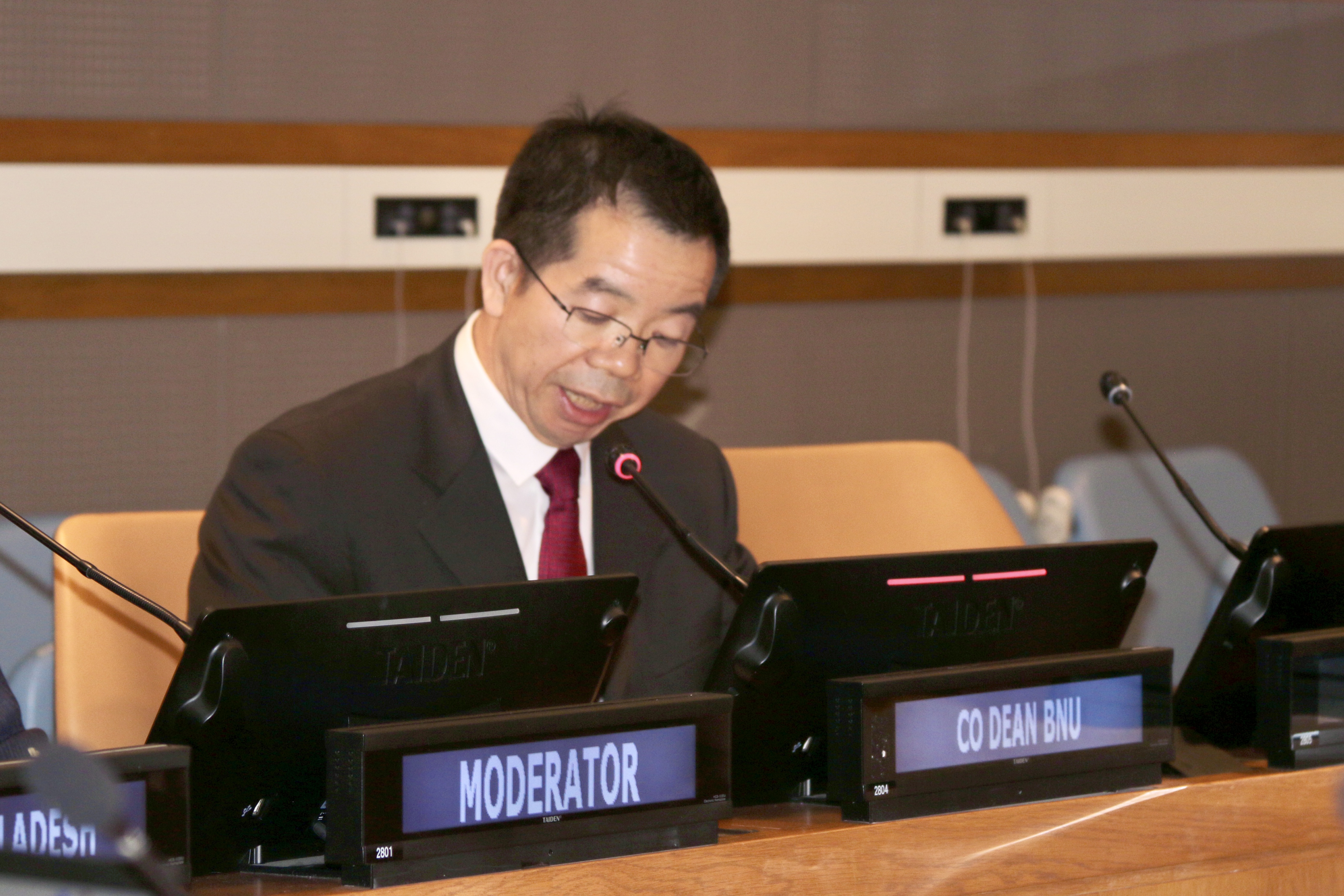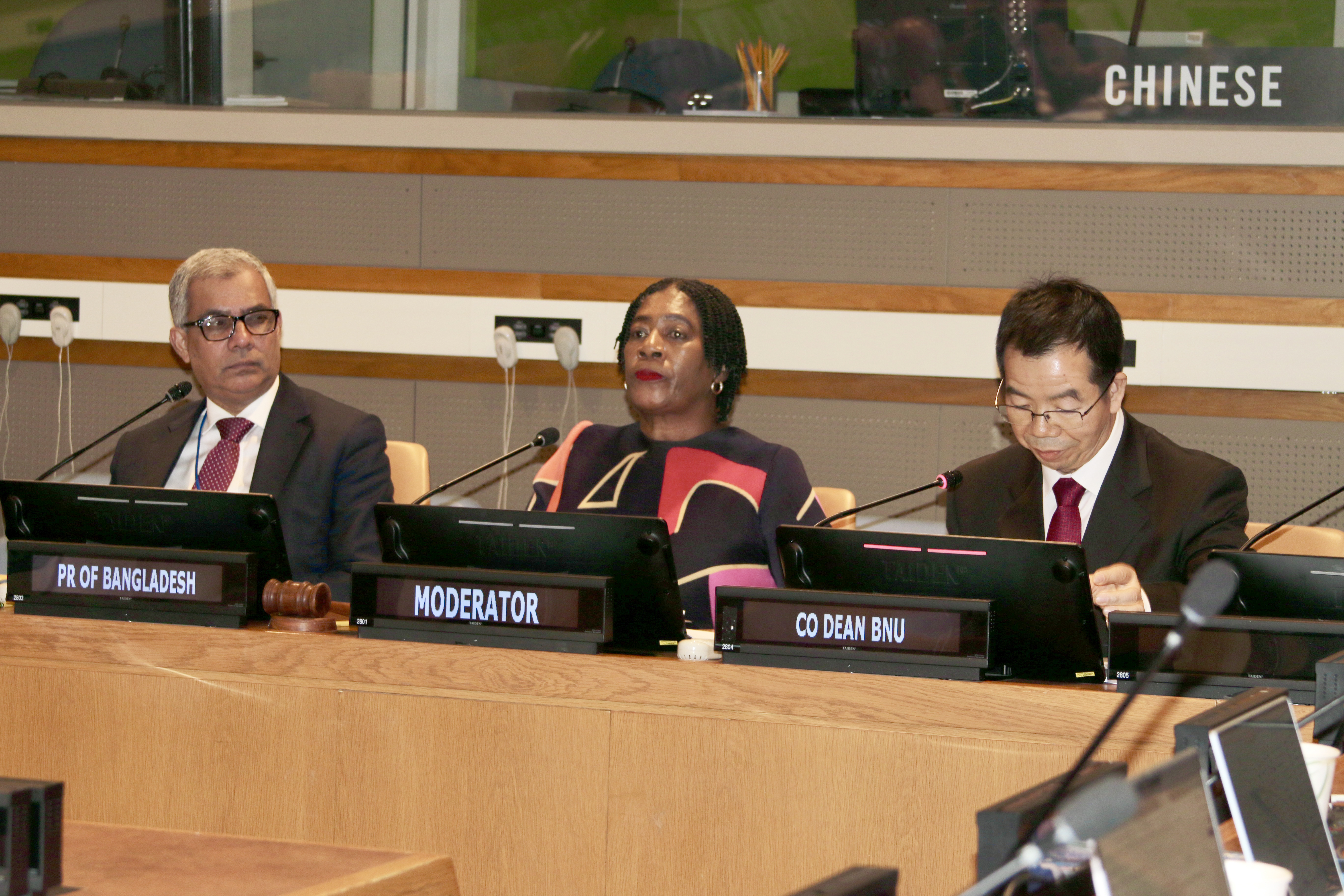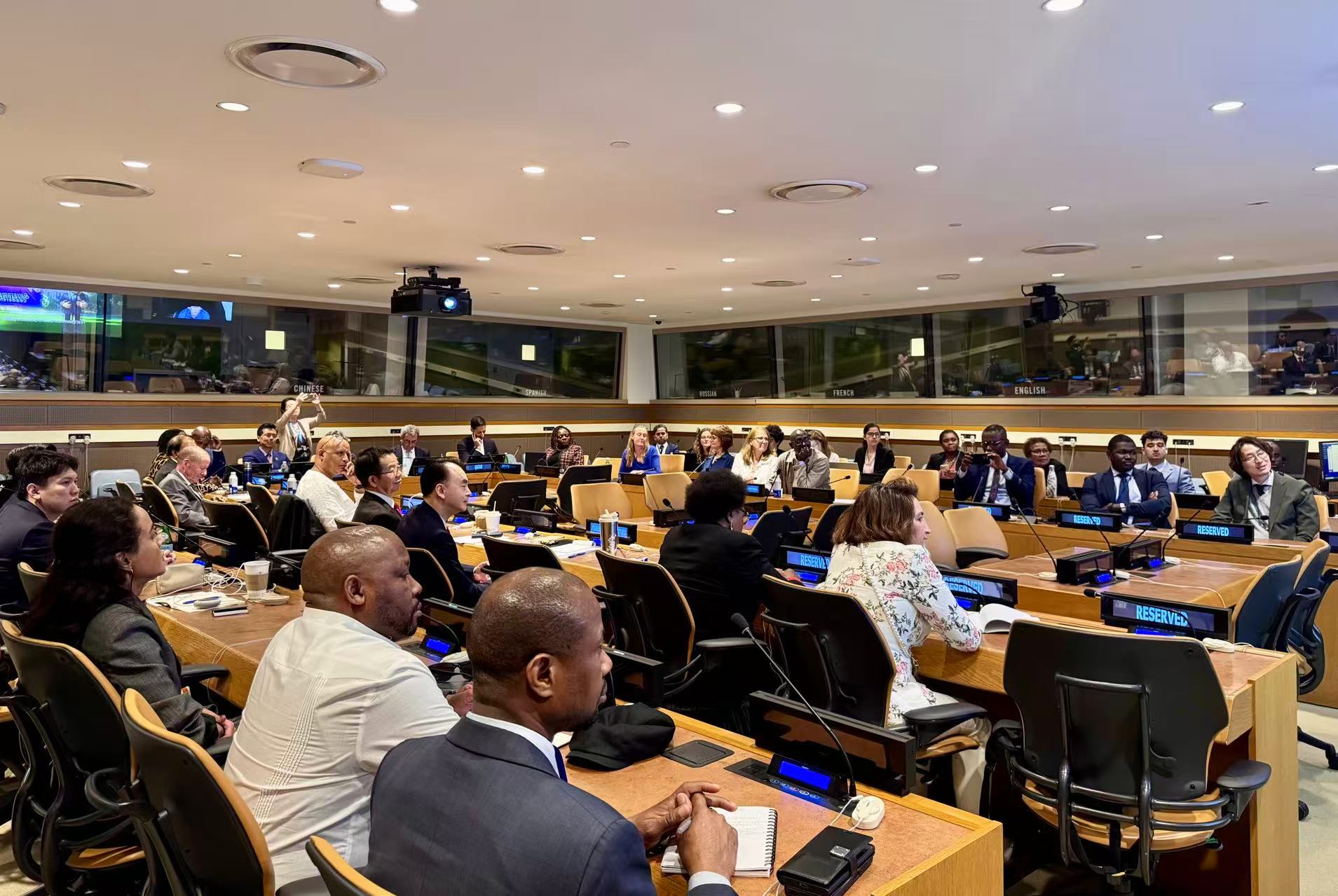Prof. Huang Ronghuai from BNU Participates in UN EGM on Online University for STEM Education in LDCs
From June 3 to 4, the UN High-Level Expert Group Meeting on Online University or Equivalent Platform for STEM Education for the Least Developed Countries (LDCs) was held at the United Nations Headquarters in New York. Organized by the United Nations Office of the High Representative for the Least Developed Countries, Landlocked Developing Countries, and Small Island Developing States (UN-OHRLLS), the meeting aimed to advance the implementation of the Doha Programme of Action and explore the feasibility and sustainability of establishing a “United Nations Online University” (UNOU) or equivalent platform. The initiative seeks to foster inclusive, equitable, context-relevant, and high-quality STEM education, equipping vulnerable and marginalized groups with the skills needed for sustainable development in the digital era.

Group Photo of the UN High-Level Expert Group Meeting on Online University for STEM Education in Least Developed Countries
H. E. Ms. Rabab Fatima, United Nations Under-Secretary-General and High Representative for UN-OHRLLS, delivered the opening address. Permanent Representatives and senior officials from Timor-Leste, The Gambia, Qatar, Malawi, Bangladesh, Nepal, and Türkiye also attended the meeting and delivered remarks. The event brought together representatives from UNESCO, the United Nations University (UNU), the International Association of Universities (IAU), the International Network for Higher Education in Africa (INHEA), along with distinguished scholars, private sector leaders, and international experts. Prof. Huang Ronghuai, Co-Dean of the Smart Learning Institute of Beijing Normal University and UNESCO Chair on Artificial Intelligence and Education, was invited to participate as the sole representative from Chinese universities.


Prof. Huang Ronghuai shares insights during his presentation at the UN High-Level Expert Group Meeting.
During the meeting, Prof. Huang shared insights based on China’s experience in digital education and presented four key policy insights for ensuring the sustainable development of the UNOU:
1. Leveraging Generative AI to Support Open Universities Governance
Prof. Huang emphasized that online universities must go beyond providing digital courses and ensure financial, operational, technical, social, and pedagogical sustainability. Drawing on ongoing research at the Smart Learning Institute of BNU, he suggested that generative AI could play a pivotal role in optimizing management, enhancing instructional quality, and offering personalized learning experiences. He proposed building a cloud-based AI-adaptive platform that integrates Open Educational Resources (OERs) and partners with LDC universities to establish local learning centers that provide both academic support and certification services.
2. Using the Blended Model to Design Online Platform in LDCs
Noting the limitations many African nations face in delivering effective online education, Prof. Huang advocated for integrating multiple modalities—such as TV, radio, and print materials—into a comprehensive teaching strategy. He recommended that the UNOU draw on UNESCO’s Handbook on Facilitating Effective Remote Learning during COVID-19 School Closures and adopt a flexible, demand-driven curriculum supported by appropriate technology to ensure online STEM education in LDCs is accessible, affordable, adaptive and engaging.
3. Expanding Access to STEM through E-Textbooks and Metaverse Technologies
Prof. Huang pointed to China’s development of digital textbooks and over 2,000 virtual simulation courses in emerging fields such as AI, smart agriculture, and intelligent manufacturing. More than 300 national-level virtual simulation centers have been established. He proposed that UNOU localize and pilot these high-quality resources in LDCs, while also strengthening digital capacity-building for teachers in areas such as instructional design and digital pedagogy.
4. Scaling Up Quality MOOCs to Advance Equitable STEM Education
High-quality MOOCs are essential to improving educational inclusivity in underserved areas. China’s “National Smart Education Platform 2.0” offers over 31,000 courses, including more than 8,000 STEM courses. Initiatives like “Universities in China Western Promotion Empowered by MOOCs” have enhanced educational quality in central and western regions. He suggested that the UNOU to foster global partnerships across countries and sectors, strengthen policy dialogue, promote resource sharing and credit recognition, and mobilize funding. At the same time, he called for AI-powered tools to be used to co-develop digital content tailored to the socio-economic needs of LDCs.

Permanent Representatives to the United Nations, delegates from diplomatic missions, and attending experts listened to the presentation of the meeting’s recommendation report.
Following expert discussions, the meeting culminated in the adoption of the Recommendation Report of the High-Level Expert Group Meeting on Online University for STEM Education in LDCs. The report underscores the urgent and strategic importance of establishing such a platform and highlights the necessity of aligning efforts with national governments, particularly education ministries, in LDCs. It stresses that critical actions must focus on infrastructure development, capacity-building, financial support, quality assurance, and the last-mile delivery of services. All four of Prof. Huang’s recommendations were included in the report.
The final document will serve as a key reference for the Feasibility Report on the United Nations Online University for STEM Education in LDCs, which is scheduled for submission to the 80th session of the UN General Assembly. The report not only showcases China’s innovations in smart education but also contributes valuable insights to global policy dialogue on advancing inclusive and sustainable STEM learning.


